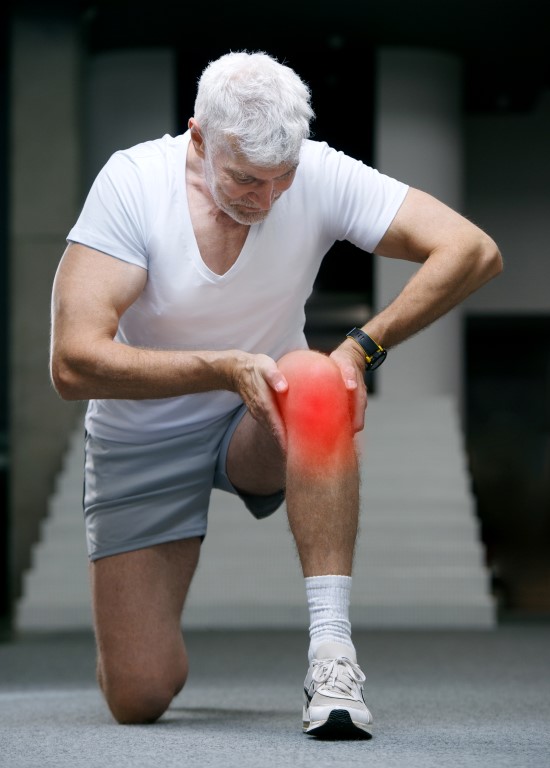
Orthopedic Surgery: How to Recover Faster After Joint Replacement
Joint replacement surgery, whether for the knee, hip, or shoulder, can significantly improve mobility and quality of life. However, the recovery process plays a crucial role in achieving the best results. Understanding post-surgical care and following the right steps can help you heal faster and return to daily activities with ease. Here are essential tips for a smooth and speedy recovery after joint replacement surgery.
[caption id="attachment_4551" align="alignnone" width="1152"] Close up of man rubbing his painful back isolated on white background.[/caption]
Close up of man rubbing his painful back isolated on white background.[/caption]

 Businessman, back pain and x ray of spine from sitting and working by laptop on desk chair at the office. Employee male suffering spinal injury or slip disk with ache, inflammation or painful join.[/caption]
Businessman, back pain and x ray of spine from sitting and working by laptop on desk chair at the office. Employee male suffering spinal injury or slip disk with ache, inflammation or painful join.[/caption]
 Close up of man rubbing his painful back isolated on white background.[/caption]
Close up of man rubbing his painful back isolated on white background.[/caption]
1. Follow Your Surgeon’s Instructions
Your orthopedic surgeon will provide a comprehensive post-operative plan, including medication schedules, wound care, and activity restrictions. Adhering to these guidelines is crucial for preventing complications and ensuring proper healing.2. Engage in Physical Therapy
Rehabilitation exercises are essential for regaining strength and mobility. A structured physical therapy program will help:- Improve joint flexibility
- Strengthen surrounding muscles
- Reduce stiffness and swelling
- Enhance overall stability and balance
3. Manage Pain Effectively
Pain management is a critical aspect of recovery. Doctors may prescribe pain relievers, anti-inflammatory medications, or recommend natural remedies like cold therapy and elevation to reduce swelling. Staying ahead of pain allows for more effective rehabilitation.4. Maintain a Healthy Diet
Nutrition plays a key role in healing. Focus on a diet rich in:- Protein: Aids in tissue repair and muscle rebuilding
- Calcium & Vitamin D: Strengthens bones and supports joint health
- Antioxidants: Reduces inflammation and promotes recovery

5. Gradually Increase Activity Levels
While rest is essential, prolonged inactivity can lead to stiffness and muscle loss. Engage in low-impact exercises such as:- Walking short distances with support
- Stationary cycling (if recommended by your doctor)
- Swimming or water therapy (once the incision has healed)
6. Practice Proper Wound Care
Keeping the surgical site clean and dry reduces the risk of infection. Follow these steps:- Change dressings as instructed
- Watch for signs of infection (redness, swelling, unusual discharge)
- Avoid soaking in bathtubs or swimming pools until cleared by your doctor
7. Use Assistive Devices If Needed
Walking aids such as crutches, walkers, or canes can provide additional support during the early recovery phase. Gradually transition away from these aids as strength and stability improve.8. Get Sufficient Rest & Sleep
Quality sleep is essential for tissue repair and overall recovery. Consider these tips:- Sleep in a comfortable position that reduces joint strain
- Use pillows for extra support
- Follow a consistent sleep schedule to promote deep rest
9. Stay Positive & Motivated
Recovery can be challenging, but maintaining a positive mindset is essential. Setting small goals and tracking progress can boost motivation and ensure steady improvement. Engage with support groups or talk to others who have undergone similar procedures for encouragement. [caption id="attachment_4550" align="alignnone" width="928"] Businessman, back pain and x ray of spine from sitting and working by laptop on desk chair at the office. Employee male suffering spinal injury or slip disk with ache, inflammation or painful join.[/caption]
Businessman, back pain and x ray of spine from sitting and working by laptop on desk chair at the office. Employee male suffering spinal injury or slip disk with ache, inflammation or painful join.[/caption]









